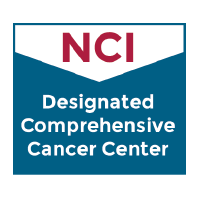
Melanoma
Melanoma is cancer that arises from the pigment-producing cells in the uppermost layer of the skin. These cells are called melanocytes.
Melanoma that originates in the skin is called cutaneous melanoma. It also may occur in the eye, a condition called ocular melanoma or intraocular melanoma. In rare cases, melanoma may begin in the digestive tract called meninges, lymph nodes or other parts of the body where there are melanocytes.
Ultraviolet radiation, which is present in sunlight and in tanning beds, probably sets off many cases of melanoma by causing genetic damage in melanocytes. Children and adolescents are especially sensitive to the effects of ultraviolet light.
Melanoma is potentially life-threatening because it can travel from the skin to other parts of the body. With early diagnosis, however, survival rates are encouraging. The goal is to recgonize melanoma early. Often, the first signs of melanoma are changes in a mole or the appearance of a new colored spot on the skin.
When melanoma spreads, cancer cells are found in the lymphatic system. If the disease spreads to other parts of the body, it's called metastatic melanoma.
The chance of developing melanoma increases with age, but it affects people of all ages and is one of the most common cancers in young adults.
Our Approach to Melanoma
UCSF provides advanced care for patients with all stages of melanoma, from early lesions to advanced metastatic cancer. We also care for patients who are at higher risk of developing melanoma due to family history, genetic mutations or having many abnormal moles.
Our team includes dermatologists, medical and surgical oncologists, radiation oncologists, geneticists and dermatopathologists (subspecialists with advanced training in analyzing tissue microscopically). These experts work together to evaluate your case and personalize your treatment plan. We also offer access to clinical trials, which are studies to evaluate new treatments.
In addition, we provide a variety of resources to support you and your family while under our care at UCSF.
Awards & recognition
-

Among the top hospitals in the nation
-

Best in Northern California for cancer care (tie)
-

Designated comprehensive cancer center
-

melanoma patients seen each year
UCSF Health medical specialists have reviewed this information. It is for educational purposes only and is not intended to replace the advice of your doctor or other health care provider. We encourage you to discuss any questions or concerns you may have with your provider.





